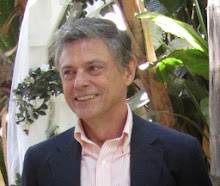Tuesday, October 8, 2013
AP EUROPEAN HISTORY: THE RENAISSANCE
AP EURO: THE ITALIAN AND NORTHERN RENAISSANCE FOCUS QUESTIONS
This is the first of many focus questions from each unit. This posting will help you answer the questions posed to you, and what they mean by “to what extent,” “explain,”, etc. You do not have to answer these....just understand what will be required of you when you DO answer future focus questions.
1. To what extent and in what ways did the Italian Renaissance result from Italy's geographic advantage in he world trade of the 15th century?
2. "Although the term "renaissance" is misleading, the modern world began with Renaissance secularism and individualism." Assess the validity of this statement
3. Explain why Machiavelli's The Prince is both one of the most misinterpreted
books of modern times and the first modern treatise in political science
4. Contrast and compare the Italian and Northern Renaissance
5. Analyze how the Northern Renaissance gave rise to two diverse trends: religious mysticism and revival and science and technology.
1. "Geography is destiny" So it is said. And the strategic location of Italy, a peninsula jutting into the Mediterranean, gave it advantages in the world trade of the 15th century. "How and how much" are the questions to answer here. The clues are inherent in the geography. With what parts of the world did the Europeans carry on trade at this time? Why did Italy have an advantage? What were the rewards of that advantage? How were those rewards instrumental in fostering the greatest brief period of creativity in history?
2. "To judge the value" or "determine the truth:" of this statement, you must ascertain why the term "renaissance" may be misleading and what the "modern world" is. Then you must determine whether or not the modern world began with secularism and individualism. Can we claim that any era, especially one so complex, began at a specific time or with a few ideas? Did these concepts affect other developments - the Reformation, for instance? This abstract question requires careful thought and organization to answer.
3. "Explain" offers no choice. You must "make clear," or "detail," and "offer meanings, causes, reasons for." The essence of the book is in the phrase "The welfare of the state justifies everything....." Is this equivalent to arguing that the end justifies the means? What was Machiavelli's purpose in writing the book? How did his methods of observation and his arguments make it the "first modern treatise in political science?" Would medieval philosophers have considered the same issues? If so, what would their arguments be based upon?
4. "Show differences"; "examine similarities." In showing the differences, consider how each began, which influenced which, how their emphases differed, how they interpreted common concepts differently, how they expressed their differences. How did the art and literature of each differ? How did the personalities vary - who was the "ideal Renaissance man: in Italy, in Northern Europe? What were the accomplishments of each? In examining similarities, consider common concepts such as "individualism" and "secularism"; look for similarities in their religious commitments, in their artistic and literary techniques and themes, in their approaches to defining human life.
5. In this case, analyze means primarily to "determine the relationships" between the Northern Renaissance and two glaringly different approaches to the human condition: religion and science. How did the study of ancient texts - specifically Hebrew and Greek versions of the Bible and the writings of the early Church Fathers - revitalize religious devotion? How did the concept of "individualism" encourage the very personal religious experience of mysticism? How did "individualism" and "skepticism" give rise to modern science? Why did the revival of religion and the growth of mysticism occur primarily in Northern Europe? Was Italian religious devotion centered on the arts? Did the papacy have less sway in the North? Why did Northern Europe give birth to modern science? Was the desire to understand and control nature the Northern counterpart to Italian virtu or richness of the human spirit? Was it a tradition that began with the mathematician Regiomontanus and evolved into the Copernican formula for a heliocentric universe?

